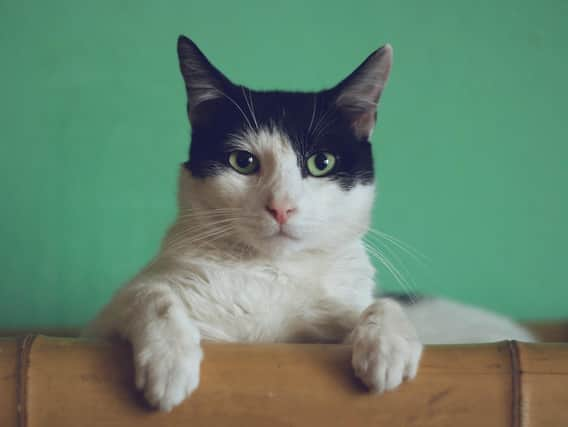PDSA issues advice on identifying and preventing stress in cats


The same is true for our pets – and particularly cats – who can be highly sensitive to changes in their lives.
Nina Downing, PDSA vet nurse, said: “With ‘normal life’ set to resume before too long and many of us slowly returning to our workplaces, it’s important for owners to keep an eye out for stress in their pets – especially our feline friends, where the signs are often harder to spot.
Advertisement
Hide AdAdvertisement
Hide Ad“Finding out what has made our cats stressed can be difficult as there is no one-size-fits-all, but there are some common causes to be aware of.
“One of the biggest causes of stress in cats is a change in environment. This may be something as big as moving to a new house, or as small as rearranging the furniture, trying out a new candle or buying a new duvet set.
“Small changes in their routine, including feeding times, or new or absent members of the household, may also cause your cat anxiety.”
“Just like when humans experience stress, cats may display their concerns in different ways.
Advertisement
Hide AdAdvertisement
Hide Ad“If your cat is hiding or staying out of the way more than usual, it may be that something is bothering them. This could be accompanied by a change in body language – they may crouch or sink low to the ground and meow more than normal.
“Out of character behaviour such as a playful cat not wanting to engage any more or changes in toilet habits are also signs to look out for.
"It’s important to note that any of these changes may be an early symptom of other medical conditions, so always take your pet to the vet if you notice changes in their behaviour.”
“Thankfully there are several ways you can make a stressed cat happy again.
Advertisement
Hide AdAdvertisement
Hide Ad"Start with the basics by returning to set routines, making sure your cat has enough resources such as food bowls, constant access to fresh, clean water and enough beds, toys, scratching posts and litter trays.
"You could also set up a den for them, ideally on top of a secured unit or shelf, where they can see what’s going on whilst feeling tucked away and safe.
"Plug-in pheromone diffusers can also be useful.
“Maintaining a daily routine, including keeping the same feeding schedule every day and ensuring your cat is remaining active, are all important to reducing stress.
“For cats that venture outdoors, it can be helpful to provide them with a microchip reading cat flap so they can come and go as they choose, without the threat of other cats being able to get into their home.”
To find out more about the PDSA, and to support the charity’s work, visit www.pdsa.org.uk.